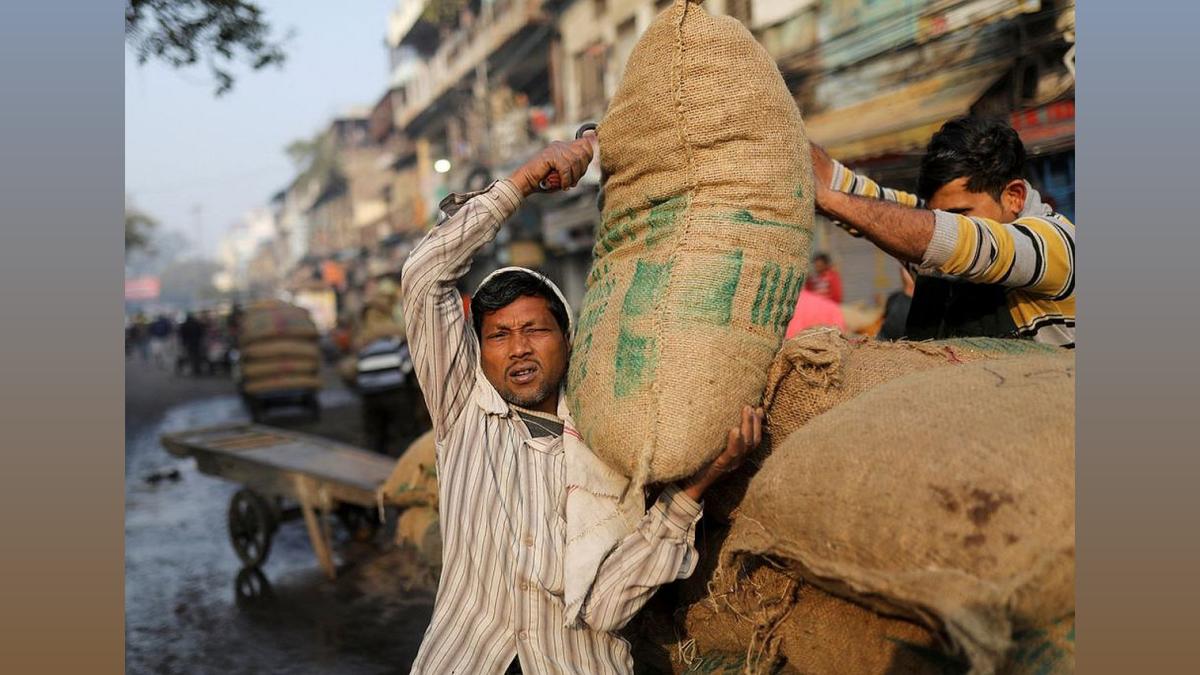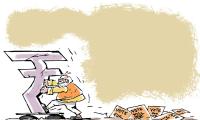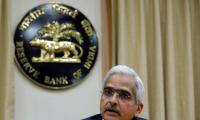India's FY24 Growth Upgraded to 6.7%: Ind-Ra
India Ratings and Research (Ind-Ra) has raised its GDP growth forecast for FY24 to 6.7%, citing economic resilience, government capex, and potential private investment.

Photograph: Anushree Fadnavis/Reuters
New Delhi, Jan 3 (PTI) India Ratings and Research on Wednesday upped GDP growth estimate for current fiscal to 6.7 per cent, from 6.2 per cent, citing resilient economy, sustained government capex and prospect of a new private corporate capex cycle.
It flagged weak global growth and trade as risks which weighed down the growth estimates, besides volatile geopolitical situation.
"All these risks will continue to weigh on and restrict India's GDP growth to 6.7 per cent in FY24. The quarterly GDP growth, which came in at 7.8 per cent YoY and 7.6 per cent YoY in 1QFY24 and 2QFY24 respectively, is slated to slow down sequentially in the remaining two quarters of FY24," Ind-Ra Principal Economist Sunil Kumar Sinha said.
The RBI also expects a sequential slowdown in the GDP growth in the remaining two quarters and expects the overall FY24 GDP to come in at 7 per cent.
The Indian economy grew 7.2 per cent in 2022-23 fiscal.
In a statement, India Ratings and Research (Ind-Ra) said it has revised up its GDP growth estimate for FY24 to 6.7 per cent from earlier 6.2 per cent.
This has been led by a number of factors -- the resilience of the Indian economy; sustained government capex; deleveraged balance sheet of corporates/banking sector; prospect of a new private corporate capex cycle; and sustained momentum in business and software services exports, coupled with remittances from the rest of the world.
Highlighting that consumption demand is not broad based, Ind-Ra said wage growth is critical for consumption growth.
Ind-Ra's calculation shows that a 1 per cent increase in real wages could lead to a 1.12 per cent increase in the real private final consumption expenditure (PFCE) and the multiplier effect of this could result in a 64 basis point increase in the GDP growth.
However, the data shows that the real wage growth of households belonging to the lower income bracket was marginally negative in second quarter (July-September) of current fiscal. On the other hand, the real wage growth of households belonging to the upper income bracket grew 6.4 per cent YoY in the second quarter of FY24.
"As a result, the current consumption demand is skewed in favour of the goods and services consumed largely by the households belonging to the upper income bracket. Ind-Ra believes sustained real wage growth of the households belonging to lower income bracket is an imperative for a sustainable and broad-based recovery in consumption demand," it said.
Ind-Ra expects PFCE, which denotes money spent by individuals on goods and services for personal consumption, to grow 5.2 per cent year on year in current fiscal, as against 7.5 per cent in last fiscal.
The PFCE growth which increased to 6 per cent in the first quarter, again declined to 3.1 per cent YoY in second quarter of current fiscal.
However, PFCE growth in the second half (October-March) will benefit from the base effect. Last year in October-March period PFCE growth was 2.5 per cent.
With regard to inflation, Ind-Ra said it expects the average retail and wholesale inflation (WPI) to come in at 5.3 per cent and 0.6 per cent, respectively, in FY24.
"Ind-Ra believes unless the inflation stabilises around 4 per cent mark, the RBI might not go for monetary easing and therefore remain in the pause mode on the repo rate front in the near term," it said.
It flagged weak global growth and trade as risks which weighed down the growth estimates, besides volatile geopolitical situation.
"All these risks will continue to weigh on and restrict India's GDP growth to 6.7 per cent in FY24. The quarterly GDP growth, which came in at 7.8 per cent YoY and 7.6 per cent YoY in 1QFY24 and 2QFY24 respectively, is slated to slow down sequentially in the remaining two quarters of FY24," Ind-Ra Principal Economist Sunil Kumar Sinha said.
The RBI also expects a sequential slowdown in the GDP growth in the remaining two quarters and expects the overall FY24 GDP to come in at 7 per cent.
The Indian economy grew 7.2 per cent in 2022-23 fiscal.
In a statement, India Ratings and Research (Ind-Ra) said it has revised up its GDP growth estimate for FY24 to 6.7 per cent from earlier 6.2 per cent.
This has been led by a number of factors -- the resilience of the Indian economy; sustained government capex; deleveraged balance sheet of corporates/banking sector; prospect of a new private corporate capex cycle; and sustained momentum in business and software services exports, coupled with remittances from the rest of the world.
Highlighting that consumption demand is not broad based, Ind-Ra said wage growth is critical for consumption growth.
Ind-Ra's calculation shows that a 1 per cent increase in real wages could lead to a 1.12 per cent increase in the real private final consumption expenditure (PFCE) and the multiplier effect of this could result in a 64 basis point increase in the GDP growth.
However, the data shows that the real wage growth of households belonging to the lower income bracket was marginally negative in second quarter (July-September) of current fiscal. On the other hand, the real wage growth of households belonging to the upper income bracket grew 6.4 per cent YoY in the second quarter of FY24.
"As a result, the current consumption demand is skewed in favour of the goods and services consumed largely by the households belonging to the upper income bracket. Ind-Ra believes sustained real wage growth of the households belonging to lower income bracket is an imperative for a sustainable and broad-based recovery in consumption demand," it said.
Ind-Ra expects PFCE, which denotes money spent by individuals on goods and services for personal consumption, to grow 5.2 per cent year on year in current fiscal, as against 7.5 per cent in last fiscal.
The PFCE growth which increased to 6 per cent in the first quarter, again declined to 3.1 per cent YoY in second quarter of current fiscal.
However, PFCE growth in the second half (October-March) will benefit from the base effect. Last year in October-March period PFCE growth was 2.5 per cent.
With regard to inflation, Ind-Ra said it expects the average retail and wholesale inflation (WPI) to come in at 5.3 per cent and 0.6 per cent, respectively, in FY24.
"Ind-Ra believes unless the inflation stabilises around 4 per cent mark, the RBI might not go for monetary easing and therefore remain in the pause mode on the repo rate front in the near term," it said.
You May Like To Read
TODAY'S MOST TRADED COMPANIES
- Company Name
- Price
- Volume
- Vodafone-Idea-L
- 11.38 ( -2.32)
- 80983625
- AvanceTechnologies
- 1.16 (+ 4.50)
- 33455526
- Mehai-Technology
- 1.65 ( -4.62)
- 28125306
- Alstone-Textiles
- 0.28 ( 0.00)
- 25417004
- Sunshine-Capital
- 0.27 ( 0.00)
- 25381630





